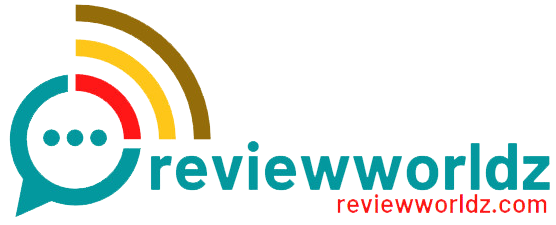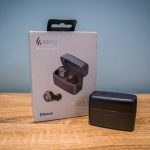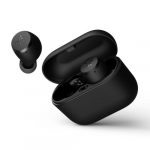In today’s fast-paced digital age, smartphones have become an integral part of our daily lives. From communication and entertainment to productivity and convenience, these powerful devices have transformed the way we live and interact. However, their impact goes beyond the realms of convenience and entertainment, extending to the realm of personal health and wellness. Mobile apps have emerged as a revolutionary tool for improving and maintaining our well-being. In this article, we will delve into the health benefits plus mobile app and explore how they are transforming the landscape of personal wellness.
Exploring the Health Benefits Plus Mobile App
Access to Information and Education

One of the significant advantages of mobile apps is the easy access they provide to a vast wealth of health-related information and educational resources. Through health apps, users can learn about various medical conditions, symptoms, and treatment options. They can access reputable sources, consult medical professionals through telemedicine, and even participate in online communities for support and guidance. This accessibility to reliable information empowers individuals to make informed decisions about their health, promoting proactive self-care.
Personalized Fitness and Nutrition
Mobile apps have revolutionized the way we approach fitness and nutrition. They offer personalized exercise plans, meal tracking, calorie counters, and diet suggestions tailored to individual goals and preferences. Fitness apps can track activities, monitor progress, and provide real-time feedback, making workouts more effective and motivating. Similarly, nutrition apps help users maintain a balanced diet, track nutrient intake, and manage food allergies or dietary restrictions. By promoting healthy habits and making fitness and nutrition more accessible, mobile apps have become valuable companions in achieving and maintaining a healthy lifestyle.
Mental Health and Stress Management
In recent years, there has been a growing emphasis on mental health and well-being. Mobile apps have stepped in to address these concerns by offering a range of tools for stress management, meditation, and mindfulness. These apps provide guided meditation sessions, breathing exercises, sleep aids, and stress reduction techniques, allowing individuals to find calm and relaxation amidst their busy lives. Moreover, many mental health apps offer journaling features, mood tracking, and cognitive behavioral therapy exercises to help users manage anxiety, depression, and other mental health conditions.
Chronic Disease Management
For individuals living with chronic diseases, mobile apps have become indispensable tools for managing their conditions effectively. From diabetes and asthma to hypertension and arthritis, there are numerous apps designed to track symptoms, monitor vital signs, and provide medication reminders. These apps enable users to maintain health diaries, log medications and treatments, and receive personalized insights into their condition. Additionally, they often allow for seamless integration with wearable devices, providing real-time data to healthcare professionals and enhancing remote patient monitoring.
Sleep Tracking and Improvement
Sleep plays a vital role in our overall well-being, and mobile apps have emerged as valuable aids for improving sleep quality. These apps utilize sensors in smartphones or connected wearable devices to track sleep patterns, monitor sleep duration, and measure the quality of rest. They offer features such as bedtime reminders, white noise generators, and relaxation techniques to help users establish healthy sleep routines. By providing insights into sleep habits and offering strategies for improvement, these apps contribute to better sleep hygiene and overall wellness.
Medication Management

Mobile apps have greatly simplified the process of medication management, particularly for individuals who take multiple prescriptions or have complex medication regimens. These apps allow users to set medication reminders, track dosage schedules, and receive alerts for refills. They can also provide information about potential drug interactions, side effects, and precautions. By promoting medication adherence and helping users stay organized, these apps contribute to better treatment outcomes and overall health.
Women’s Health Tracking
Mobile apps have brought convenience and empowerment to women’s health by offering dedicated features for menstrual cycle tracking, fertility monitoring, and pregnancy management. These apps allow users to log and predict menstrual cycles, track ovulation, and record symptoms or mood changes. They can also provide insights into fertility windows and help individuals conceive. During pregnancy, these apps offer guidance on prenatal care, provide week-by-week updates, and offer tips for a healthy pregnancy. By putting women in control of their reproductive health, these apps promote greater understanding and awareness.
Remote Monitoring and Telehealth
The COVID-19 pandemic accelerated the adoption of remote monitoring and telehealth solutions, and mobile apps played a crucial role in facilitating virtual healthcare services. Through telemedicine apps, patients can consult with healthcare professionals remotely, receive diagnoses, and get prescriptions. Remote monitoring apps, when integrated with wearable devices, enable continuous tracking of vital signs, such as heart rate and blood pressure. These apps allow for real-time data sharing and analysis, enabling healthcare providers to remotely monitor patients with chronic conditions and intervene when necessary.
Smoking Cessation Support
Quitting smoking is a challenging process, and mobile apps have emerged as valuable tools in supporting individuals on their journey to quit smoking. These apps offer features such as tracking daily cigarette consumption, setting goals, and providing motivational messages and rewards for milestones achieved. They can also provide information about the health benefits of quitting, coping strategies for cravings, and access to support networks or helplines. By providing constant support, motivation, and educational resources, these apps contribute to increased success rates in smoking cessation.
Allergy Management

For individuals with allergies, mobile apps can be lifesavers. These apps offer features such as pollen forecasts, allergy symptom trackers, and information about allergens in specific locations. Users can receive personalized alerts about high allergen levels and access tips for managing allergy symptoms. Some apps even allow users to log their reactions, track triggers, and share reports with healthcare providers. By assisting individuals in identifying and avoiding allergens, these apps enhance quality of life and reduce the impact of allergies on overall health.
Conclusion
The expanding landscape of mobile apps continues to shape and revolutionize the way we approach personal health and wellness. From medication management to women’s health tracking, remote monitoring, smoking cessation support, and allergy management, these apps provide innovative solutions and empower individuals to take control of their health. As technology advances, we can expect even more sophisticated and user-friendly apps that cater to a wide range of health needs. By harnessing the power of mobile apps, we can embark on a journey of improved well-being and lead healthier lives.





